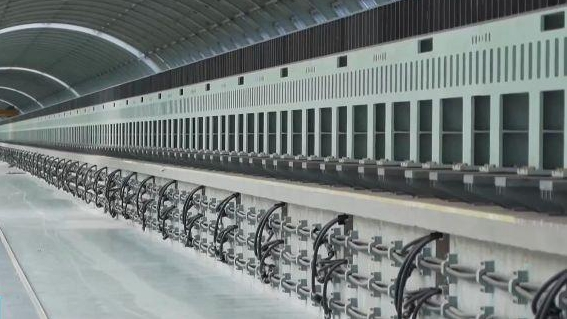In a blink of an eye, researchers at Donghu Laboratory in central Hubei Province on the Chinese mainland accelerated a 1.1-tonne maglev test vehicle to a record-shattering 650 km/h in just 7 seconds along a custom 1,000-meter track.
By leveraging advanced magnetic levitation support and electromagnetic propulsion, the train floats above the guideway on a “like-pole repulsion” cushion—eliminating wheel friction and leaving only air resistance to overcome.
Unlike conventional trials that demand 30–40 km of track, this short-distance method relies on ultra-precise speed and positioning measurements accurate to within 4 millimeters. “This is the fastest speed in the world,” says project lead Li Weichao.
The same electromagnetic systems instantly reverse the process for braking, bringing the vehicle from top speed to zero in just 200 meters. With full track construction set for completion by year-end, the team eyes an 800 km/h typical operating speed next.
Beyond headline speeds, this platform doubles as a testbed for next-generation transport tech—from ultra-fast passenger links to advanced cargo solutions. For global citizens, entrepreneurs, and tech fans, it’s a thrilling preview of tomorrow’s high-velocity world.
Reference(s):
China breaks record with maglev train hitting 650 km/h in 7 seconds
cgtn.com




